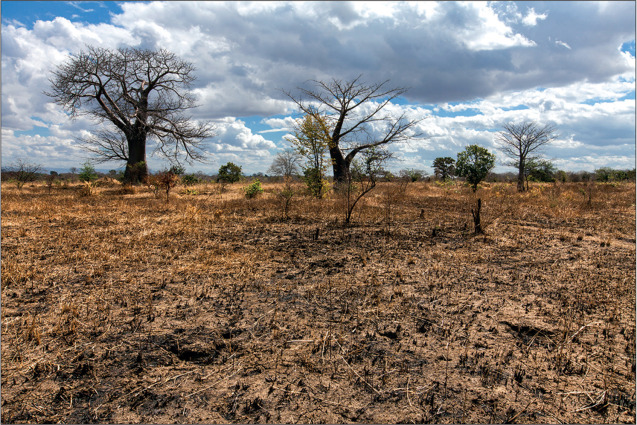
Egypt has taken a significant step forward in its space program with the launch of Horus-2, a satellite aimed at monitoring climate change and addressing the growing water scarcity issues in the country. According to NASA's Earth Observatory, a mere 4 percent of Egypt's land is suitable for agriculture, and that number is steadily decreasing due to rapid urbanization accompanying population growth. To counter this trend and ensure food security, Egypt has been increasingly relying on satellite data for finding effective remedies.

The Climate Change Summit is set to make its return to Bucharest, Romania, in October for its second edition. Positioned as the largest event in Central and Eastern Europe dedicated to climate change, the summit aims to bring together influential leaders in climate innovation, environmental policy, researchers, entrepreneurs, and government officials in pursuit of actionable solutions for a sustainable future.

The rising energy and utility prices in Hungary, including Budapest, have created significant challenges for local governments. With the responsibility of managing the public transport system, the city of Budapest faces the task of ensuring its operability during the ongoing energy crisis. Mayor Gergely Karácsony addressed the issue in an interview, highlighting the difficulties faced by the capital city. Despite having a solid financial background following opposition victories in 2019, the energy crisis has put Budapest's stability in the past.

Antonio Guterres, the Secretary-General of the United Nations Security Council, has issued a grave warning about the escalating threat of rising sea levels, highlighting the possibility of a mass exodus due to the impacts of climate change. Alexandria, Egypt's second-largest city with a population of 5.5 million, is particularly vulnerable to this peril. Increasingly violent winter storms and flash floods pose a significant danger to the city's seafront. Recognizing the urgency of the situation, Alexandria has been listed by UNESCO as one of several Mediterranean cities in need of tsunami preparedness by 2030, prompting a race against time for solutions.

Antonio Guterres, the Secretary-General of the United Nations Security Council, has warned member states about the escalating threat of rising sea levels, describing it as potentially leading to a mass exodus of populations on an unprecedented scale. Alexandria, Egypt's second-largest city with a population of 5.5 million, is particularly vulnerable to this peril. Violent winter storms and flash floods are becoming more frequent, endangering the city's seafront. In response to this imminent danger, Alexandria, listed by UNESCO as one of several Mediterranean cities needing tsunami preparedness by 2030, is urgently seeking solutions.

Leaders, activists, and finance officials from around the world are gathering in Paris for the Summit for a New Global Financing Pact. The main focus of the summit is to address the need for overhauling the world's development banks, such as the International Monetary Fund (IMF) and World Bank, and ensuring they are better equipped to tackle the challenges of climate change. While issues like debt restructuring and poverty reduction will be discussed, the spotlight will be on the representation of developing nations and the inclusion of climate change considerations in lending decisions.

The Indian government is undertaking a pan-India study to gauge the impact of climate change and the behavior of microclimates within states and districts. The study, which is expected to be released by 2027, will be conducted by the India Meteorological Department (IMD) and will expand the IMD's network of monitoring stations across the country.

UN Deputy Secretary-General Amina Mohammed has praised China's significant efforts in tackling climate change and its commitment to multilateralism. As one of the world's largest economies and a major investor in renewables, China has the opportunity to set an example of a new development pathway that decouples growth from emissions. With over half of the world's new renewables projected to be in China, the country's investments in renewable energy and its role in global initiatives like the Kunming Montreal Global Biodiversity Framework demonstrate its commitment to reversing biodiversity loss and protecting nature. China's contributions have played a crucial part in achieving milestones such as the adoption of a new UN treaty to protect marine biodiversity and the expected overtaking of global solar investment over oil production for the first time.

Mexico is facing a severe energy crisis as a deadly heatwave and record-breaking temperatures grip the country. With temperatures exceeding 113F in some states, Mexico has experienced a significant spike in heat-related deaths, reaching a peak in the last two weeks. The strain on the power grid has led to power shortages across more than 10 Mexican states, highlighting the lack of investment and preparedness in the country's electric system. Experts warn that climate change is exacerbating extreme heat in Mexico and that power shortages may become increasingly common. The Mexican government's neglect of investment in the electric system, coupled with a reliance on state-owned energy plants, has contributed to the current crisis.

The World Meteorological Organization (WMO) has warned that India may experience decreased rainfall conditions this year due to a potential El Nino event. The warming effect of El Nino, combined with greenhouse gas emissions, is expected to contribute to erratic rainfall patterns. The WMO advises Indian farmers not to wait for the official declaration of an El Nino but to proactively adapt to the possibility. El Nino occurs when sea surface temperatures in the central and eastern equatorial Pacific Ocean rise by 0.5 degrees Celsius or more in the Nino 3.4 region. Forecasts indicate the likelihood of an El Nino, which could exacerbate the flood-drought cycle already observed in the country.